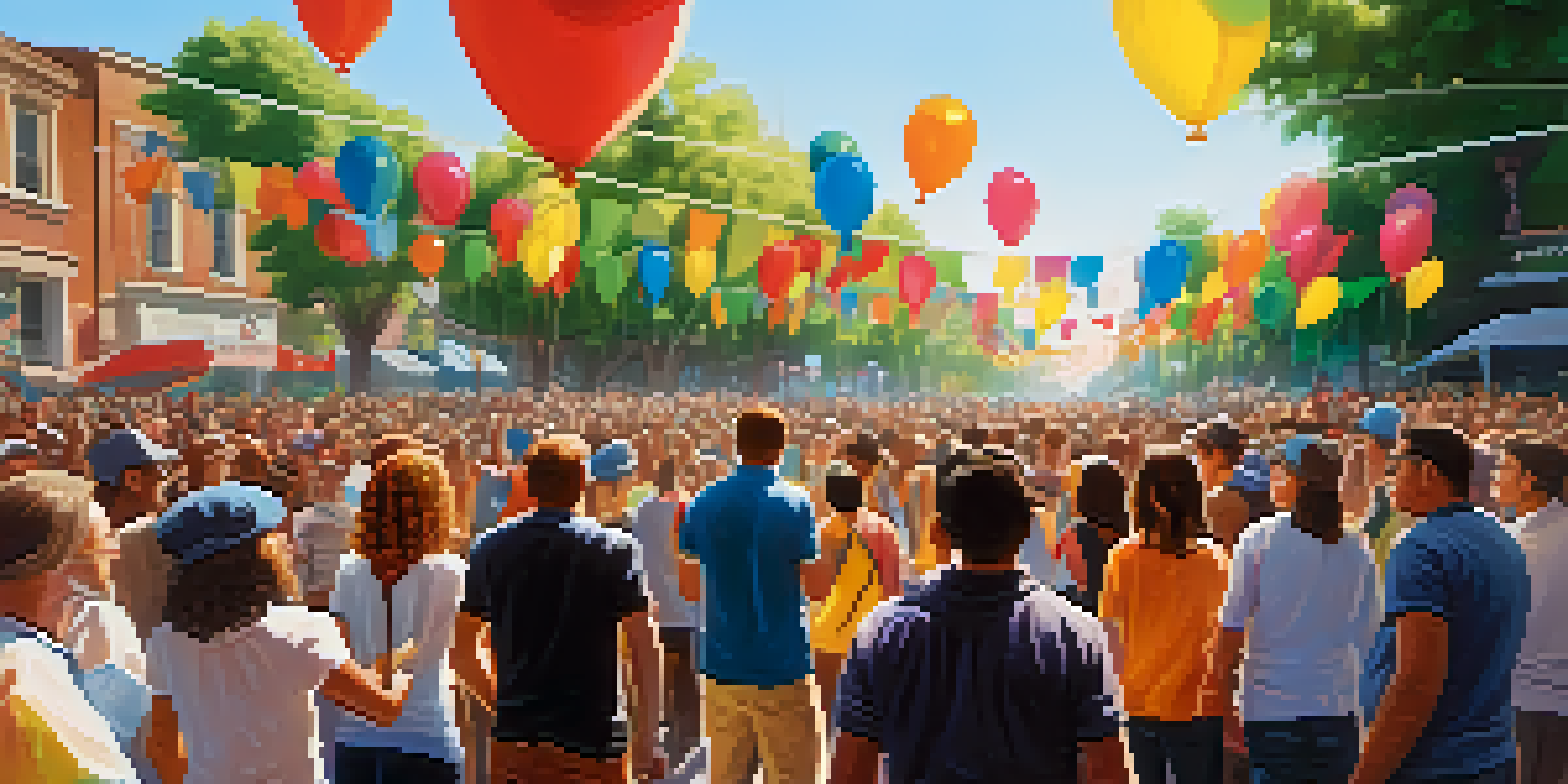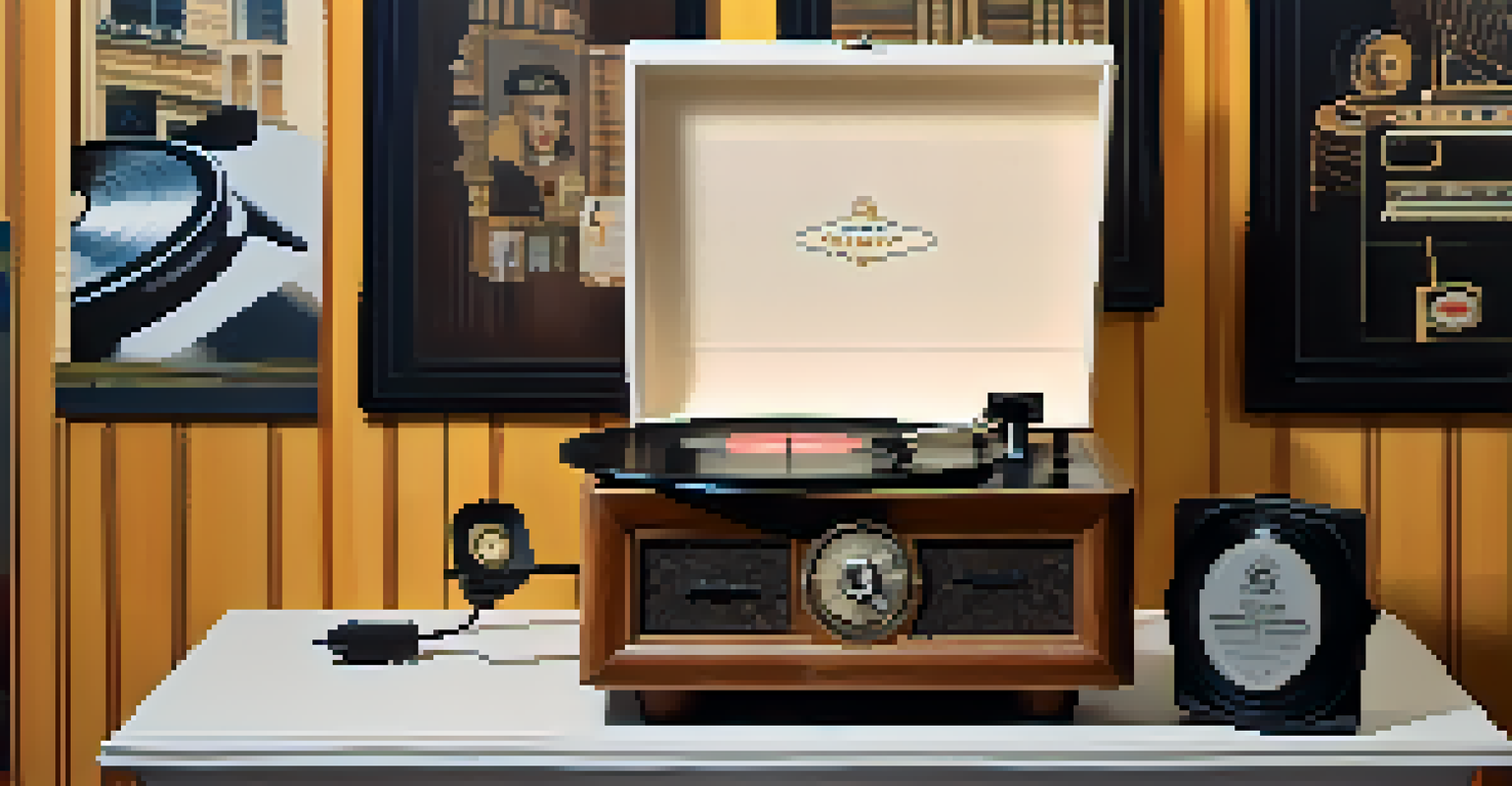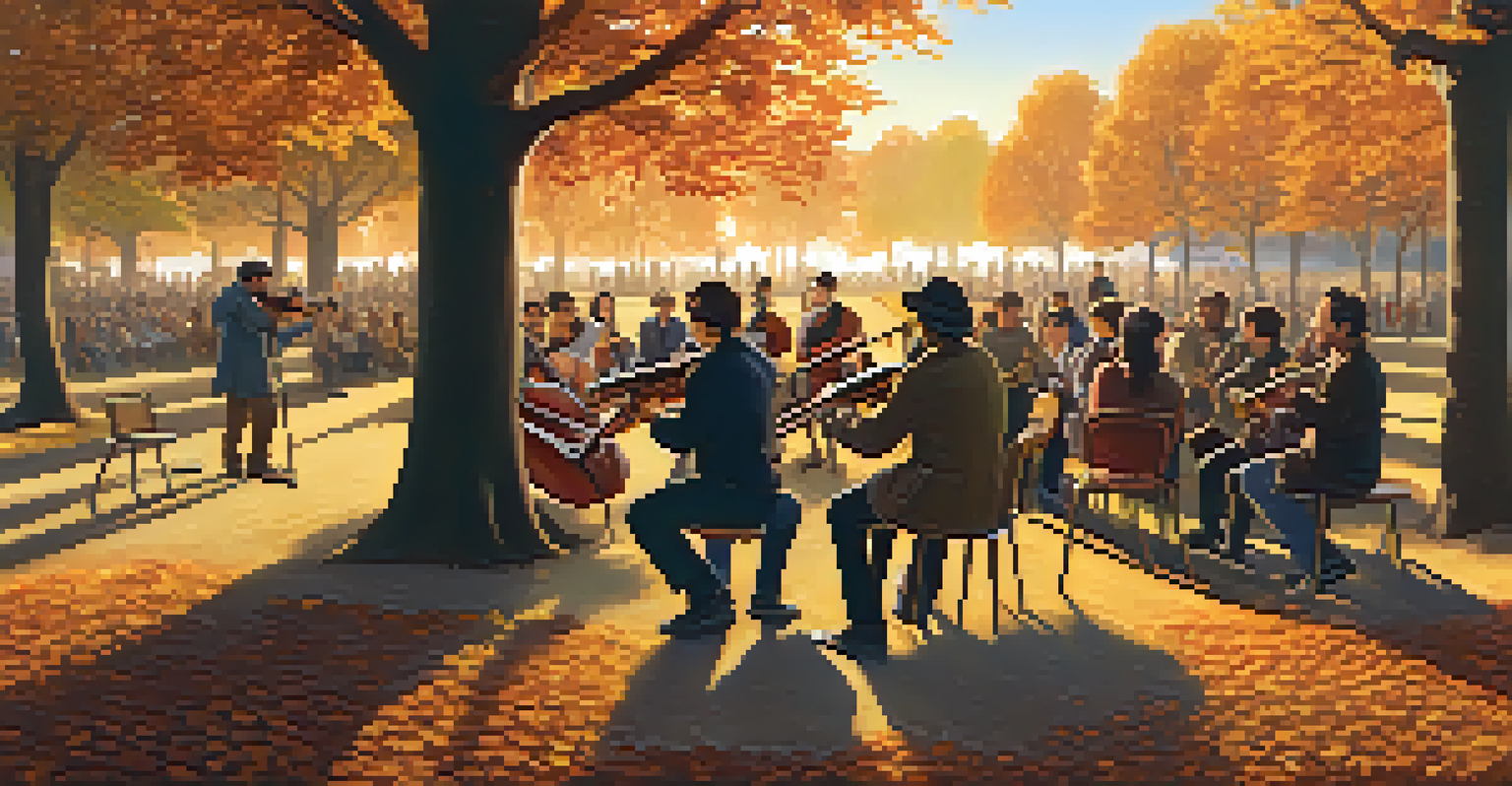Music, Propaganda, and Political Regimes: A Historical View

The Power of Music in Shaping Political Narratives
Music has long served as a powerful tool in shaping political narratives. Throughout history, leaders have harnessed the emotional pull of music to sway public opinion and rally support. For example, during the American Revolution, songs like 'Yankee Doodle' helped instill a sense of unity and purpose among the colonists.
Music can change the world because it can change people.
The ability of music to evoke feelings and memories makes it an effective medium for propaganda. It can simplify complex ideas, making them more digestible for the average listener. This is particularly important in political contexts, where the stakes are high and clarity is crucial.
Moreover, catchy tunes can easily spread among the populace, enabling them to participate in the political discourse. When people sing along, they are not just passive listeners; they become active participants in a shared narrative that can influence their beliefs and actions.
Historical Examples of Music as Propaganda
Looking back at various regimes, we find numerous instances where music has been employed as a propaganda tool. For instance, in Nazi Germany, the regime used anthems and military marches to cultivate national pride and loyalty. Songs like 'Horst Wessel Lied' were not just entertainment; they were instruments of indoctrination.

Similarly, during the Cold War, both the United States and the Soviet Union used music to promote their ideologies. American jazz and rock 'n' roll were seen as symbols of freedom and individualism, while Soviet composers created works that glorified communism and the state. Each side understood that music could reinforce their messages on a global stage.
Music Shapes Political Narratives
Throughout history, music has been a powerful tool for influencing public opinion and fostering unity in political contexts.
These historical examples illustrate how music can be weaponized for political purposes, often blurring the line between art and propaganda. The emotional resonance of these songs continues to impact public sentiment long after their initial release.
The Role of Folk Music in Revolutions
Folk music has been a cornerstone in many revolutionary movements, serving as a voice for the oppressed. In the 1960s, for example, folk artists like Bob Dylan and Joan Baez used their music to speak out against war and injustice. Their songs became anthems for civil rights and anti-war movements, uniting people under a common cause.
The power of music is such that it can influence the political landscape, inspire movements, and unite diverse groups of people.
The simplicity and relatability of folk music allow it to resonate deeply with various audiences. Its roots in everyday life make it accessible, encouraging participation from those who may not otherwise engage in political discourse. This grassroots approach can be incredibly powerful, as seen in movements across Latin America.
In many cases, folk songs have been adapted or repurposed to reflect current struggles, demonstrating music's ability to evolve alongside political climates. This adaptability keeps the spirit of resistance alive, ensuring that the message remains relevant as new generations rise.
Censorship and Music: A Double-Edged Sword
Censorship is a common response from political regimes threatened by the power of music. When certain songs or artists gain popularity for promoting dissent, governments often seek to silence them. This was particularly evident in the Soviet Union, where many musicians faced persecution for their lyrical content.
However, attempts to censor music can often backfire, giving rise to underground movements that challenge authority. For instance, in South Africa during apartheid, banned songs became symbols of resistance, often circulated in secret. This only intensified their allure and significance among the oppressed populace.
Folk Music Empowers Movements
Folk music serves as a voice for the oppressed, uniting people around common causes and adapting to reflect current struggles.
The struggle between censorship and artistic expression reveals a fascinating dynamic where music can simultaneously support and resist political agendas. While regimes may try to control the narrative, the resilience of artists often leads to a flourishing of creative expression that defies repression.
Music as a Tool for National Identity
Music plays a crucial role in shaping national identity, often becoming intertwined with a country's political narrative. National anthems, for example, evoke feelings of pride and belonging, reinforcing the idea of a shared identity among citizens. These songs often draw on historical events and cultural themes that resonate deeply.
In times of conflict, music can serve to unify a nation, rallying people around a common cause. The use of music during events like the Olympics or national holidays showcases how powerful melodies can foster a sense of togetherness and patriotism. Countries often invest in musical performances that reflect their values and aspirations.
However, music can also reveal divisions within a nation. Different genres may appeal to distinct cultural groups, highlighting disparities in representation and identity. This duality shows that while music can unite, it can also challenge the status quo, prompting discussions about inclusion and diversity.
Modern Music and Political Activism
In today’s world, modern music continues to serve as a platform for political activism. Artists across genres are increasingly using their influence to address social issues, from climate change to racial inequality. Songs like Childish Gambino's 'This Is America' have sparked national conversations, illustrating the power of music in shaping public discourse.
Social media has amplified this effect, allowing artists to share their messages directly with their audience. Platforms like TikTok and Instagram enable songs with political messages to go viral, reaching a wider audience than ever before. This instant access to music and messaging can mobilize young people to take action.
Modern Music Drives Activism
Today, artists leverage their platforms and social media to raise awareness and mobilize action on critical social issues.
Furthermore, music festivals and concerts have become venues for activism, with many artists using their platforms to raise awareness and funds for various causes. This blending of entertainment and advocacy highlights the evolving role of music in contemporary political landscapes, continuing a long-standing tradition of using art for social change.
The Future of Music and Political Influence
Looking ahead, the relationship between music and political regimes will likely continue to evolve. As technology advances, artists will find new ways to express their messages and connect with audiences. The rise of virtual performances and digital platforms suggests that music's influence may expand even further into the political realm.
Moreover, as global issues like climate change and social justice become central to political discourse, we can expect music to play a vital role in advocacy. Artists will continue to harness their creativity to address these challenges, utilizing their platforms to inspire change and encourage action.

Ultimately, the interplay between music and politics is a dynamic and ongoing narrative. As history has shown, music will remain an essential tool for both uniting and challenging political regimes, reflecting the complexities of human experience and societal evolution.